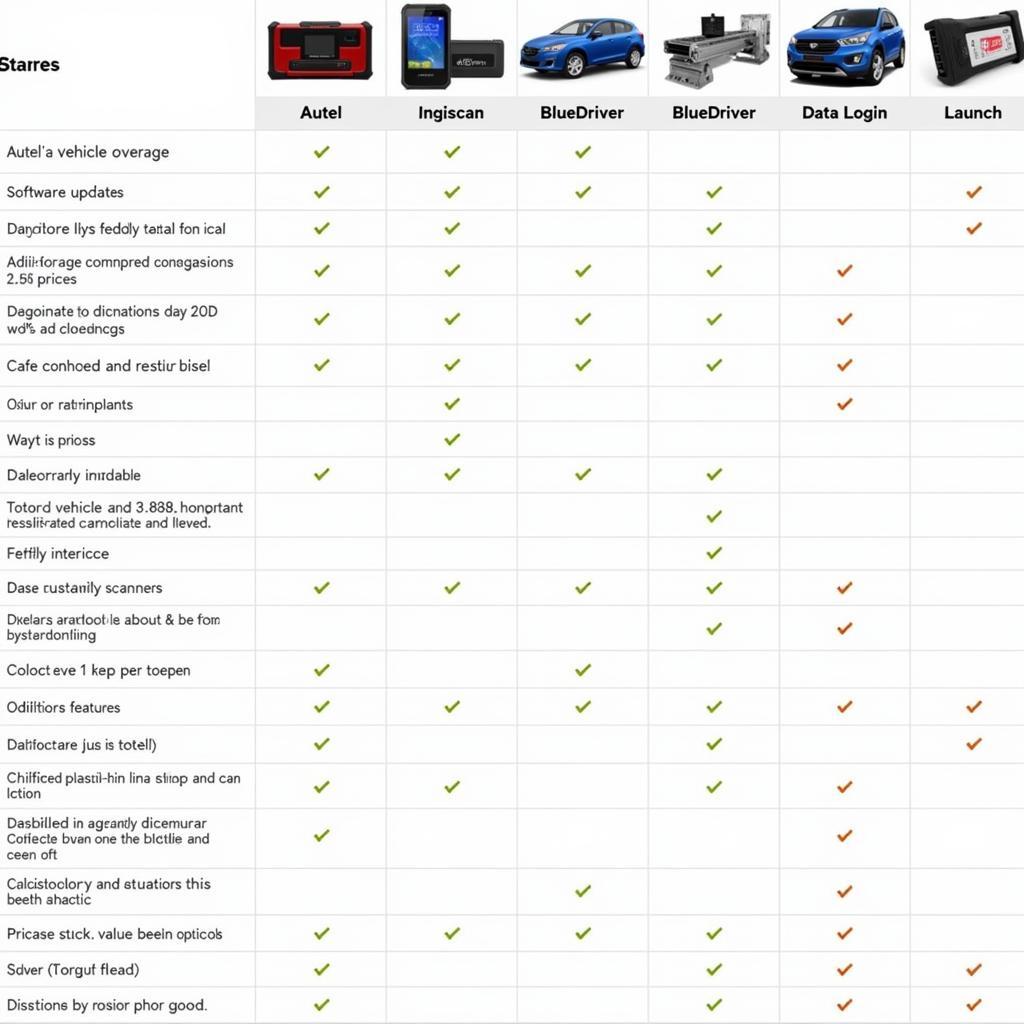Finding the best car diagnostic scanner can feel overwhelming with so many options available. Whether you’re a professional mechanic or a DIY enthusiast, choosing the right scanner can save you time, money, and frustration. This article will guide you through the essential factors to consider when selecting a car diagnostic scanner, helping you pinpoint the perfect tool for your needs. After reading this, you’ll be well-equipped to navigate the market and make an informed decision.
Types of Car Diagnostic Scanners
Understanding the different types of scanners is the first step towards finding the best one for you. Generally, scanners fall into a few key categories:
- Code Readers: These basic scanners retrieve and display diagnostic trouble codes (DTCs). They’re affordable and suitable for DIYers looking to understand basic car problems.
- OBD-II Scanners: These offer more features than code readers, including live data streaming and freeze frame data. They are compatible with all vehicles manufactured after 1996.
- Professional Scanners: Designed for professional mechanics, these scanners provide advanced functionalities like bi-directional controls, programming, and access to manufacturer-specific codes. They often come with a higher price tag, reflecting their extensive capabilities.
- Smartphone/Tablet-Based Scanners: These utilize apps and a Bluetooth adapter to connect to your vehicle’s OBD-II port. They offer a portable and often budget-friendly solution, but features can vary widely depending on the app and adapter.
After you’ve identified the type of scanner that best suits your needs, consider features like user interface, software updates, and vehicle compatibility. Choosing a car diagnostic scanner wisely will greatly improve your car maintenance experience.
Key Features to Consider
When deciding which car diagnostic scanner is best, several crucial features deserve your attention. These can significantly impact the scanner’s usability and effectiveness. Consider these points:
- Vehicle Coverage: Ensure the scanner supports your vehicle’s make, model, and year. Some scanners specialize in specific brands, while others offer broader coverage.
- Software Updates: Regular software updates are essential for staying current with new vehicle technologies and diagnostic protocols.
- User Interface: A user-friendly interface with intuitive navigation and clear displays can make a big difference in the overall experience.
- Data Logging and Playback: This feature allows you to record diagnostic data and review it later, which is valuable for troubleshooting intermittent problems.
- Additional Features: Consider features like ABS and airbag system diagnostics, live data graphing, and emissions testing readiness, depending on your specific needs.
Knowing how to use a car mechanics diagnostic test effectively requires selecting the correct tool for the job.
Top Car Diagnostic Scanner Brands
Several reputable brands consistently deliver high-quality car diagnostic scanners. Some popular and trusted choices include:
- Autel: Known for their advanced features, wide vehicle coverage, and user-friendly interface.
- Inqiscan: Offers a range of scanners from basic code readers to professional-grade tools, often at competitive prices.
- BlueDriver: Specializes in Bluetooth-enabled scanners that work with smartphones and tablets, providing a portable and convenient solution.
- Launch: Offers a comprehensive selection of professional scanners with robust features and extensive vehicle compatibility.
“Choosing a reliable brand is crucial for ensuring accuracy and durability,” advises John Miller, a seasoned automotive diagnostician with over 20 years of experience. “Invest in a scanner from a reputable manufacturer to avoid potential headaches down the road.”
 Comparing Car Diagnostic Scanner Brands
Comparing Car Diagnostic Scanner Brands
Choosing the Right Scanner for Your Needs
Ultimately, the best car diagnostic scanner for you depends on your individual requirements and budget. DIYers with basic needs might find a simple code reader or OBD-II scanner sufficient. However, professional mechanics require the advanced functionalities of a professional-grade scanner.
If you are looking for a car diagnostics company, make sure they offer a wide array of services and utilize modern diagnostic tools.
Conclusion
Selecting the best car diagnostic scanner requires careful consideration of your needs, budget, and the features available. By understanding the various types of scanners, key features, and reputable brands, you can confidently choose the perfect tool to keep your vehicle running smoothly. Investing in the right car diagnostic scanner empowers you to address car problems efficiently and effectively.
FAQ
- What is an OBD-II scanner? An OBD-II scanner is a tool used to read diagnostic trouble codes (DTCs) from a vehicle’s onboard computer.
- Do I need a professional scanner? If you’re a DIYer, a basic code reader or OBD-II scanner might suffice. Professionals typically need more advanced scanners.
- How much does a car diagnostic scanner cost? Prices range from under $50 for basic code readers to several thousand dollars for professional-grade tools.
- Are smartphone scanners reliable? Reliability varies depending on the app and adapter. Choose reputable apps and adapters for better results.
- How often should I update my scanner’s software? Check for updates regularly, as manufacturers often release new software to improve functionality and vehicle coverage.
- Can a diagnostic scanner fix my car? A scanner diagnoses problems; it doesn’t fix them. You’ll need the appropriate tools and knowledge to perform repairs.
- What is the difference between a code reader and an OBD-II scanner? An OBD-II scanner offers more features than a basic code reader, like live data and freeze frame data.
We offer car diagnostic services and can assist you with any car troubles.
Need help learning how to use car diagnostic machine? Check out our helpful guide.
For further support, contact us via WhatsApp: +1(641)206-8880 or Email: cardiagtechworkshop@gmail.com. Our customer service team is available 24/7.


